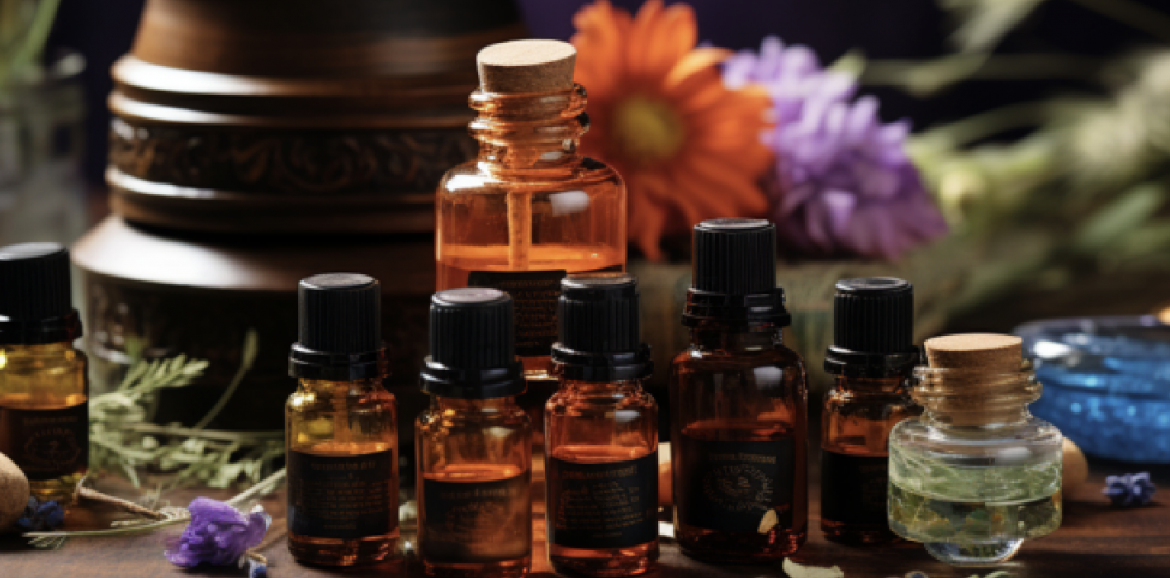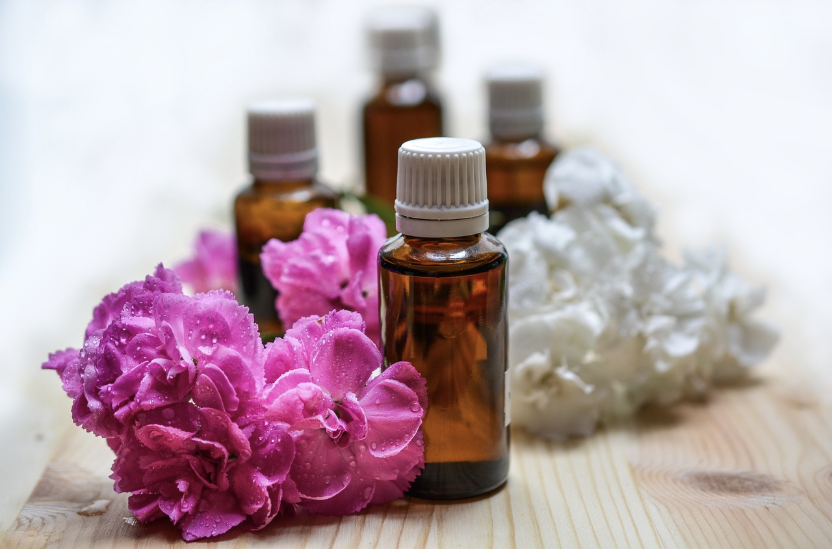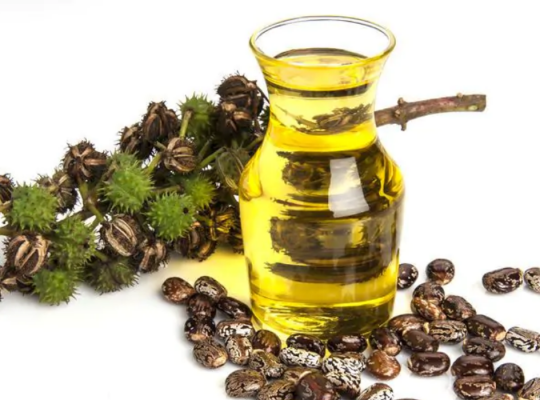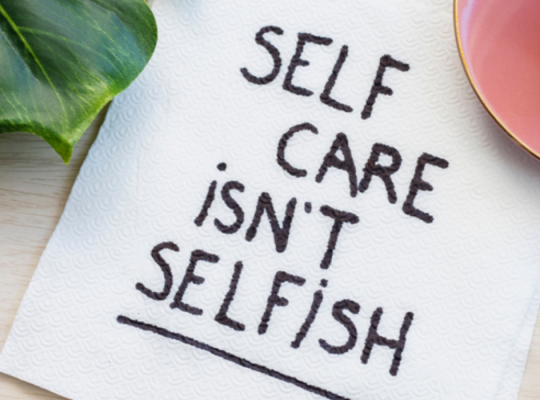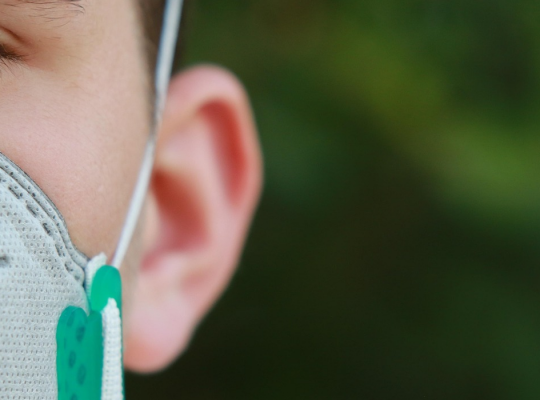Summary: Can a scent really change your life? Beyond fleeting fragrance, essential oils hold potent properties for physical and emotional well-being. Aromatherapy, the skilled art of using these oils, offers a natural path to enhanced health. Read on to find out how.
Reading Time: 5 minutes
What is Aromatherapy?
Aromatherapy is a holistic healing practice that uses natural plant extracts – essential oils – to promote overall health and well-being. It is considered both an art and a science, having gained recognition in recent years in the fields of medicine and science.
It works by stimulating the olfactory system, the part of the brain connected to smell, which in turn influences emotions, mood, memory, and even physiological processes. The goal is to harmonize the body, mind, and spirit, encouraging self-healing.
The Science Behind Scent: How Aromatherapy Works
When you inhale essential oil molecules, they travel directly to the olfactory bulb, located in the limbic system. This system is deeply connected to emotions, memory, and learning. The scent triggers a cascade of neurological responses, influencing hormone production, heart rate, blood pressure, and breathing.
Some essential oils also possess antimicrobial, anti-inflammatory, and analgesic (pain-relieving) properties that can be absorbed through the skin. Research is ongoing, but studies suggest aromatherapy can be effective in managing stress, anxiety, pain, sleep disorders, and even certain infections.
Benefits of Aromatherapy: A Holistic Approach
Aromatherapy offers a range of potential benefits, impacting various aspects of health:
- Stress Reduction and Anxiety Relief: Lavender, chamomile, and frankincense are well known for their calming and relaxing effects.
- Improved Sleep Quality: Certain oils like lavender, cedarwood, and valerian can promote relaxation and deeper sleep.
- Pain Management: Essential oils such as peppermint, eucalyptus, and rosemary possess analgesic and anti-inflammatory properties that may help alleviate muscle aches, headaches, and joint pain.
- Enhanced Mood: Citrus oils like lemon and orange can uplift mood and increase energy.
- Boosted Immunity: Some essential oils, like tea tree, eucalyptus, and oregano, have antimicrobial and antiviral properties that can support the immune system.
- Improved Cognitive Function: Rosemary and peppermint have been shown to improve focus, concentration, and memory.
Remember that while anecdotal evidence is widespread, it’s crucial to consult with a healthcare professional for any serious health concerns.
How to Use Essential Oils: A Guide to Safe and Effective Application
Aromatherapy offers versatile application methods to suit individual needs and preferences. Inspired by Young Living’s approach, here are some popular methods:
- Inhalation:
- Direct Inhalation: Simply inhale directly from the bottle, or place a few drops on a tissue or cotton ball and inhale.
- Steam Inhalation: Add a few drops to a bowl of hot (not boiling) water, cover your head with a towel, and inhale the steam for 5-10 minutes.
- Diffusers: Use an ultrasonic or nebulizing diffuser to disperse essential oil molecules into the air.
- Topical Application:
- Massage: Dilute essential oils with a carrier oil (such as jojoba, almond, or grapeseed oil) and massage onto the skin. Generally, a 1-3% dilution is recommended.
- Bath: Add a few drops of essential oil to a warm bath, after diluting in a carrier oil or emulsifier.
- Compress: Soak a cloth in warm or cold water with a few drops of essential oil, and apply to the affected area.
- Other Methods
- Aroma jewellery: Many necklaces and bracelets now have porous materials or pads within them which are designed to have essential oils dripped onto them.
Important Safety Considerations:
- Dilution is Key: Always dilute essential oils before applying them to the skin. Undiluted oils can cause irritation or sensitization.
- Patch Test: Perform a patch test on a small area of skin before using a new essential oil. Wait 24-48 hours to check for any adverse reactions.
- Pregnancy and Breastfeeding: Consult with a healthcare professional before using essential oils during pregnancy or breastfeeding. Some oils are contraindicated.
- Children and Pets: Use essential oils with caution around children and pets. Some oils are toxic to animals. Always keep oils out of reach.
- Photosensitivity: Some essential oils, particularly citrus oils, can increase sensitivity to sunlight. Avoid direct sun exposure after applying these oils topically.
- Quality Matters: Choose high-quality, 100% pure essential oils from reputable suppliers.
Choosing the Right Essential Oils for You
The world of essential oils can seem overwhelming. Start by identifying your goals – are you looking to reduce stress, improve sleep, or boost your immune system? Research different essential oils and their properties. Experiment with different blends and application methods to find what works best for you. The most important thing is to obtain Organic Essential Oils. You want them as natural as possible without synthetics or additives that are harmful and toxic to your body. ALWAYS choose ORGANIC ESSENTIAL OILS wherever possible. Don’t be afraid to seek guidance from a qualified aromatherapist.
Ready to get started with essential oils and save?
Here’s a little tip: Did you know that you can often get essential oils at a discount? By joining as a brand partner with Young Living, you can unlock a fantastic 24% discount on all their essential oil products! It’s a great way to explore a wider range of oils without breaking the bank.
When you sign up, be sure to use these IDs so you can get connected with my community:
- Sponsor ID: 16715745
- Enroller ID: 16715745
It’s a win-win: you get your favourite oils at a better price, and you become part of a supportive network.
Integrating Aromatherapy into Your Daily Life
Aromatherapy is not just a treatment; it’s a lifestyle choice. Incorporate essential oils into your daily routine to enhance your overall well-being. Diffuse calming oils in the evening to promote relaxation, use energizing oils in the morning to uplift your mood, or apply diluted oils topically to soothe sore muscles. Small changes can make a big difference.
Conclusion: A Scent-Sational Journey to Wellbeing
Aromatherapy offers a powerful and natural way to support your physical and emotional health. By understanding the science behind scent and using essential oils safely and effectively, you can unlock their potential to enhance your overall well-being. Embrace the power of aromatherapy and embark on a scent-sational journey to a healthier, happier you.
Remember to consult with a healthcare professional for any health concerns before making any significant changes to your health regimen. Visit our website for more information on natural therapies and holistic well-being.
Stay healthy!
References and Resources for additional reading:
- World Health Organization (WHO): https://www.who.int/ Note: The WHO recognizes traditional medicine, and while not explicitly endorsing aromatherapy as a standalone treatment, its promotion of integrated healthcare strategies is relevant.
- Holistic Health: https://www.holistic-health.vip/ – For further reading on holistic approaches to health.
- National Association for Holistic Aromatherapy (NAHA): https://naha.org/ – A reputable organization providing information and education about aromatherapy.
- Young Living: https://www.youngliving.com/en_eu/discover/about – Referenced for application method inspiration. (Note: For illustrative purposes).
Disclaimer: This article is for informational purposes only and does not constitute medical advice. Always consult with a healthcare professional before using essential oils, especially if you have any underlying health conditions or are taking medications.

